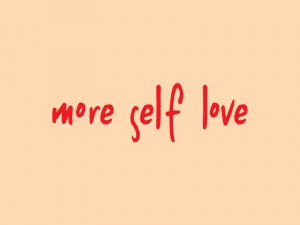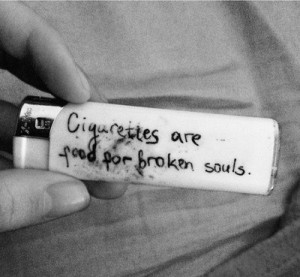People welcome jealousy into their lives, without intending to. They see something they really want and envy that which isn’t theirs. They acknowledge their want of it and, in positive instances, convert it into self-motivation.
 On the other side of the spectrum, some see something they want and experience resentment because it isn’t theirs. Their jealousy never forms into self-motivation. In fact, it becomes an all consuming fire. Their negative thoughts grow fixated on the things they don’t have, magnifying it to something incontrollable and bigger than themselves.
On the other side of the spectrum, some see something they want and experience resentment because it isn’t theirs. Their jealousy never forms into self-motivation. In fact, it becomes an all consuming fire. Their negative thoughts grow fixated on the things they don’t have, magnifying it to something incontrollable and bigger than themselves.
This is so dangerous. It affects relationships, careers, emotional and mental health, and it can really cripple your life.
Jealousy develops when we start comparing ourselves to others. I always tell my clients that we are all on our own journey. We meet people, we invest, we make some U-turns but ultimately, no one else is living the life we individually get in this lifetime. You have to get to a place where separating fact from fantasy is possible, where set goals are met, and where jealousy propels you to be proactive. As I life coach, I am continually engaging in hearing your life story. We all are so special in our own way.


 Some people are unhappy because of a bio-chemical imbalance. Somewhere down the line, they’ve compromised themselves, or they’ve entered a structure (relationship, contractual agreement, or professional position) that has forced them to live a life that’s contrary to their inner self. These people could potentially suffer from mild, chronic, or acute unhappiness. Chronic unhappiness potentially directs its host to a life of avoidance by means of addiction while acute unhappiness forces its host into a world of depression.
Some people are unhappy because of a bio-chemical imbalance. Somewhere down the line, they’ve compromised themselves, or they’ve entered a structure (relationship, contractual agreement, or professional position) that has forced them to live a life that’s contrary to their inner self. These people could potentially suffer from mild, chronic, or acute unhappiness. Chronic unhappiness potentially directs its host to a life of avoidance by means of addiction while acute unhappiness forces its host into a world of depression. Addiction, contrary to what is thought, can be a learnt behavior. In a family where words are kept behind glasses of Bourbon, there’s a chance drinking could occupy the space reserved for conversation. Drugs are used for coping with the stress of family, work, identity, and everyday life. Addictions are a physical manifestation of an inner mewing. For many addicts, the use of drugs was a form of self-medication, but mutated into self-mutilation.
Addiction, contrary to what is thought, can be a learnt behavior. In a family where words are kept behind glasses of Bourbon, there’s a chance drinking could occupy the space reserved for conversation. Drugs are used for coping with the stress of family, work, identity, and everyday life. Addictions are a physical manifestation of an inner mewing. For many addicts, the use of drugs was a form of self-medication, but mutated into self-mutilation. We forget that trends and fads are not static; they are in a mystifying, ever changing waltz. This dance is choreographed by lionized opinions from people we may never meet. Fads and trends tell us what to eat, who to date, what to wear, and what is and is not socially acceptable, for the moment. There’s no way to truly “be yourself” if the self you are molding is constantly shaped by the opinions and decisions of others. The problem with living someone else’s version of you is that we are not one size fits all personalities. What works for one person, might not work for another. We set ourselves up for a miserable life when we try to tailor, or hem, who we are so people will like us, society will be pleased with us, the church won’t judge us, and our friends will accept us.
We forget that trends and fads are not static; they are in a mystifying, ever changing waltz. This dance is choreographed by lionized opinions from people we may never meet. Fads and trends tell us what to eat, who to date, what to wear, and what is and is not socially acceptable, for the moment. There’s no way to truly “be yourself” if the self you are molding is constantly shaped by the opinions and decisions of others. The problem with living someone else’s version of you is that we are not one size fits all personalities. What works for one person, might not work for another. We set ourselves up for a miserable life when we try to tailor, or hem, who we are so people will like us, society will be pleased with us, the church won’t judge us, and our friends will accept us.